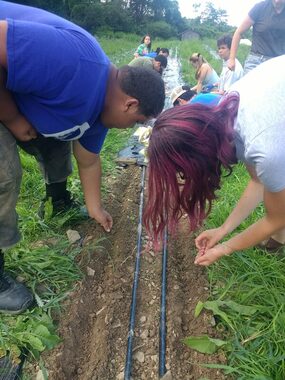 Julia de Aragón remembers the conversation that precipitated her research with the Youth Farm Project (YFP) with stunning clarity. She was crouched on the front of YFP’s tractor “sprinkling chicken poop” onto the soil and out of an old soup container as Ann Piombino (Co-Founder and former Farm Manager and Educator) drove. Julia was not a stranger to YFP or to Ann. As a young person, she found that YFP was interwoven with her life in a variety of ways. Dan Flerlage (Co-Founder and Board Member) had been Julia’s ecology teacher and mentor in high school. Katie Church (Co-Founder and Director of Administration) was the mother of one of Julia’s classmates. Julia had been a Summer Program teen at the age of 15 and spent the summer with her hands in the dirt, pulling weeds and harvesting fresh vegetables with other teens. After her experience in the Summer Program, Julia found herself returning to YFP time and time again. Her narrative thesis for her undergraduate degree included elements of YFP’s work. YFP became a “refuge” to her during the Spring of 2020 when COVID-19 reached across the globe and displaced her from the relative certainty of her Master’s degree studies at Vanderbilt University in Tennessee. And most recently, Julia has become a member of the YFP Board. Julia feels honored to be the newest Board member and describes stepping into this role as coming full circle with the farm. She is excited and prepared to ensure that YFP continues to provide the same opportunities to young people that she got to experience when she first joined the YFP as a 15 year old Summer Program teen. One significant way in which Julia has recently contributed to YFP’s, and more specifically, the Summer Program’s resilience has been through her Master’s degree research. Julia’s research findings and analysis are particularly moving. She describes her research as transformative in her own life and in terms of what they reveal about YFP. The research offers YFP the chance to constantly reflect on our Summer Program and adapt to continue to meet young peoples’ desires and needs. Julia’s findings also offer YFP a more nuanced way of representing the beautiful and sometimes enigmatic impacts of our work to community members, youth participants, and even funders. And it all began with her crouched on the tractor and “sprinkling chicken poop” with Ann. This meditative and slightly silly job offered Julia the perfect opportunity to share with Ann that she needed to create a capstone project for her Master’s degree in Community Development and Action. She wanted to conduct meaningful community-based research that answered questions that YFP wanted answers to, rather than imposing her own research questions onto the organization. When Julia shared her hopes and inquiry with Ann, Ann responded with excitement. YFP needed a way to concretely understand and archive the experiences of youth in the Teen Summer Program. Ann suggested that Julia create three sets of evaluations (pre-, mid-, and post-program) so that participants could reflect on their experiences working as part of the crew. Julia got to work, constructing three evaluations that asked young people a variety of questions. The evaluations got at questions such as what participants expected to value and be challenged by and what they actually valued and felt challenged by throughout the summer. Julia nurtured her relationship with the 20 young people working at YFP that summer of 2019 and came back to school ready to continue making meaning of it all. She found it “so special” and “rewarding” to read participants’ words and to trace the marked expansion of their confidence. The most clear-cut finding of Julia’s research was that participants valued the program’s engrained experience of “hands-on learning” more than many other elements of the program. “Hands-on learning” is so fundamental to the process of growing food and growing community. While this work can be rewarding and literally life-sustaining, it is most definitely not easy. There is so much surrounding this work of nurturing our relationships – to ourselves, to other people, to the land – and of growing food that remains out of our control. Surprising changes in the weather can change farmers’ plans for an entire day, week, or even season. Plants that look beautiful and lush one day might disappear to the appetites of groundhogs, birds, or aphids overnight. I know that I recently felt disheartened when I transplanted an entire bed of cabbage seedlings, went home feeling accomplished, and came back the next day to find some leaves riddled with holes and some completely gnawed off. Even though these are just some of the many challenges that come with growing food, so many people persist in this work. And so many people cultivate and find joy, beauty, and care in daily unpredictability. We never have complete control over our lives and work, especially when we are always in relationship with other complex and autonomous beings. Youth participants of the Summer Program continue to experience and express in their own words that this work can be arduous and fulfilling at the same time. Remarkably, Julia found in her research that young people not only valued challenges, but that they valued challenges even when they did not show marked improvement in the face of such challenges. This is a remarkable finding not just because of the sheer self-trust and openness inherent in the act of valuing challenges for their own sake, but also because of what this valuing tells us about the basic needs of the Summer Program participants. Julia analyzed her research findings partially through the Self Determination Theory (SDT) Framework. The SDT framework claims that individuals feel most motivated when three fundamental needs are met. These three needs are (1) competence, or the the ability to do something well, (2) autonomy, or the freedom and space to make independent decisions for yourself and your community, and (3) relatedness, or the feeling of being part of a strong and caring community. It is wonderful news that the teens valued being challenged just for the sake of being challenged because this tells us that all three basic needs of the summer crew members were being met and cherished. Young participants felt confident enough in themselves and their crew to fully and vulnerably embrace difficulty and uncertainty in the work of growing food. People, and nonprofits in particular, often celebrate when individuals walk away from their programs feeling skilled, empowered, and part of communities of care. These three basic needs are definitely meaningful outcomes of a lot of organizational programming. But Julia and her research reminds us that these fundamental needs can and must also be fundamental “inputs” to programming. Young people must feel empowered as individuals and community members throughout all programming so that they have the space to reach toward even more sustainable and meaningful outcomes, such as valuing challenges. We are so grateful for Julia’s research and what it affirms about YFP’s work and offers for future YFP directions. We are so grateful for Julia’s ongoing care for YFP and can’t wait for her to continue to offer her insight and movement as part of the Board! We also cannot wait for the Summer Program to begin and for young people to continue to step into their power. - Written by Emma Badini Photos of Teen Summer Program 2019. THIS SUMMER, WORK WITH US!
If you are a teen interested in working with us during the summer, apply here. Comments are closed.
|
Archives
August 2022
Categories |
The Youth Farm Project | 24 Nelson Road, Ithaca, NY 14850 | [email protected]
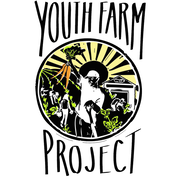
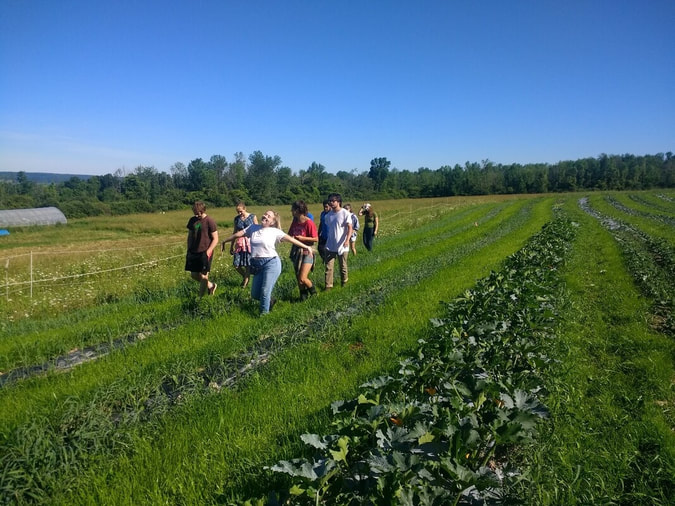
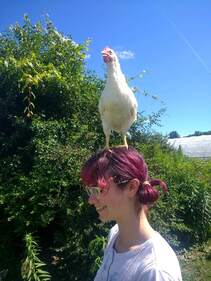
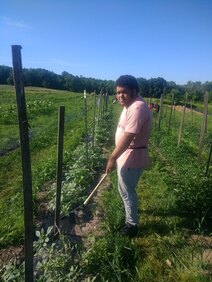
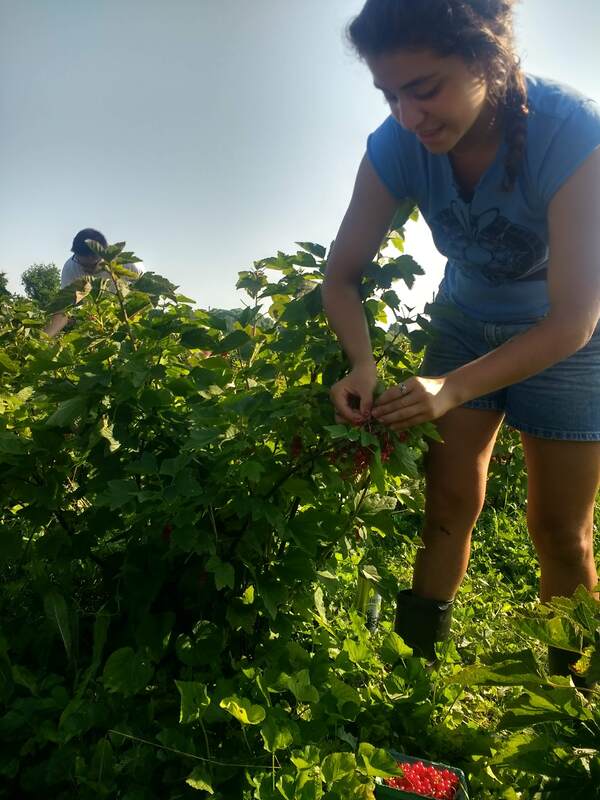
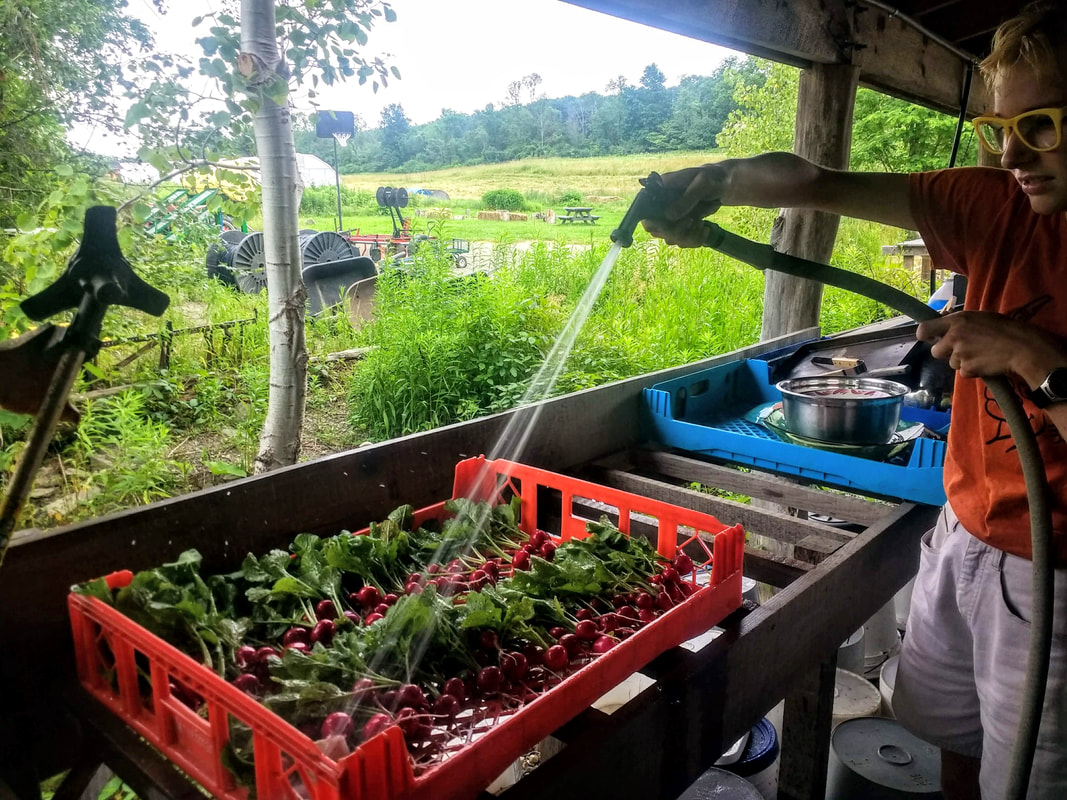
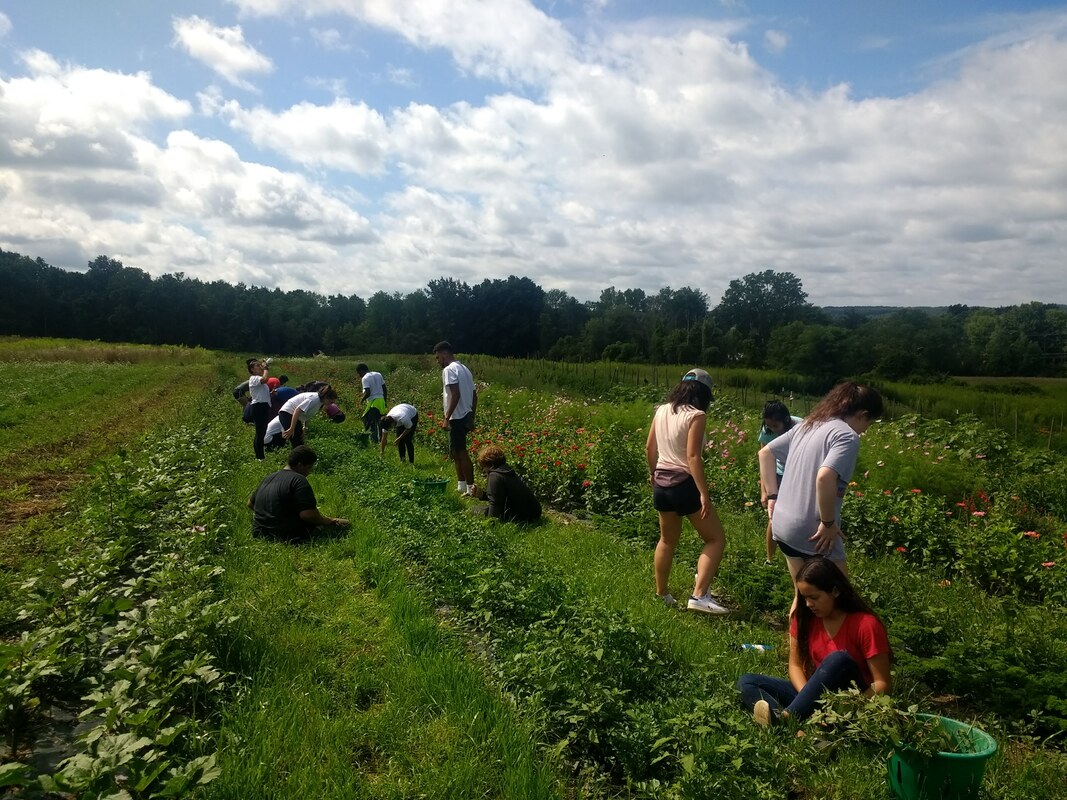
 RSS Feed
RSS Feed